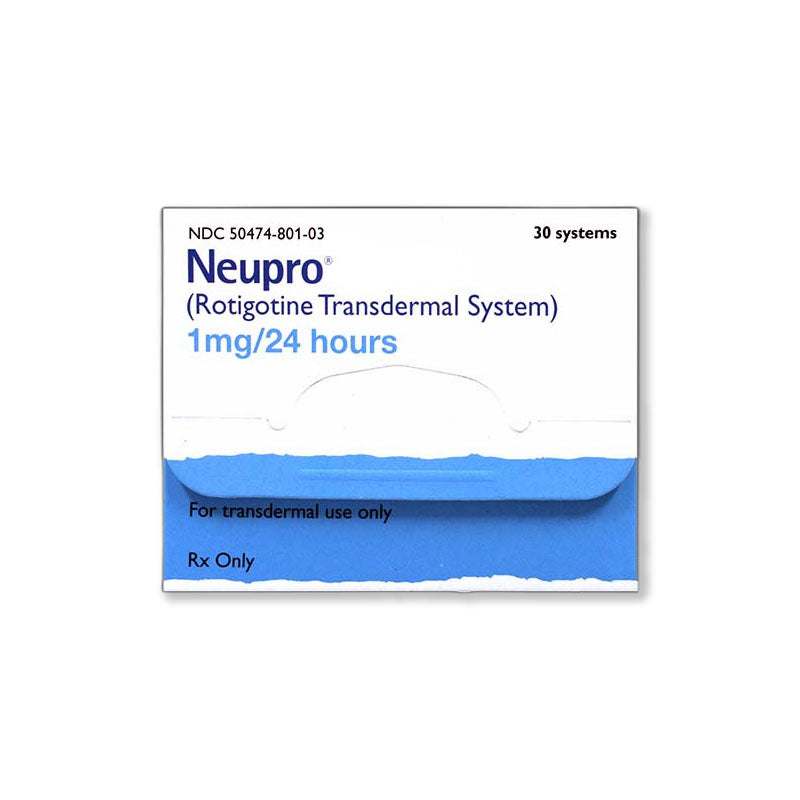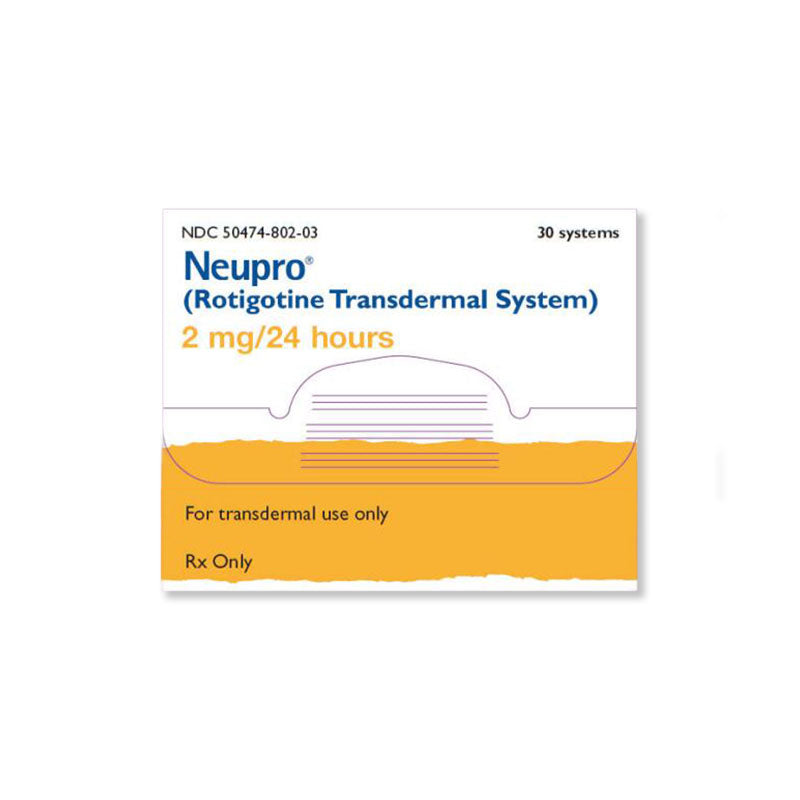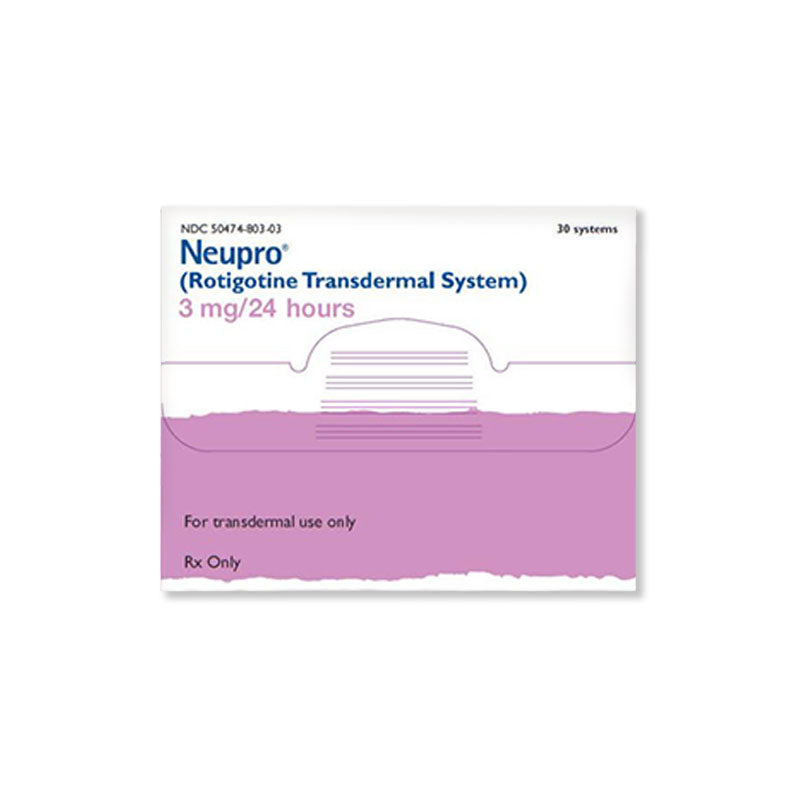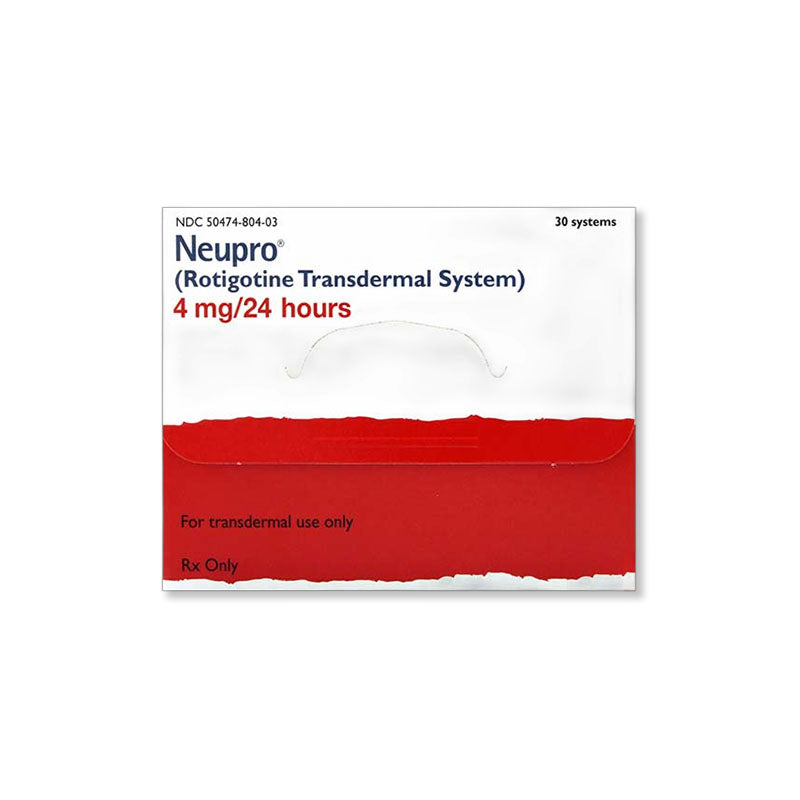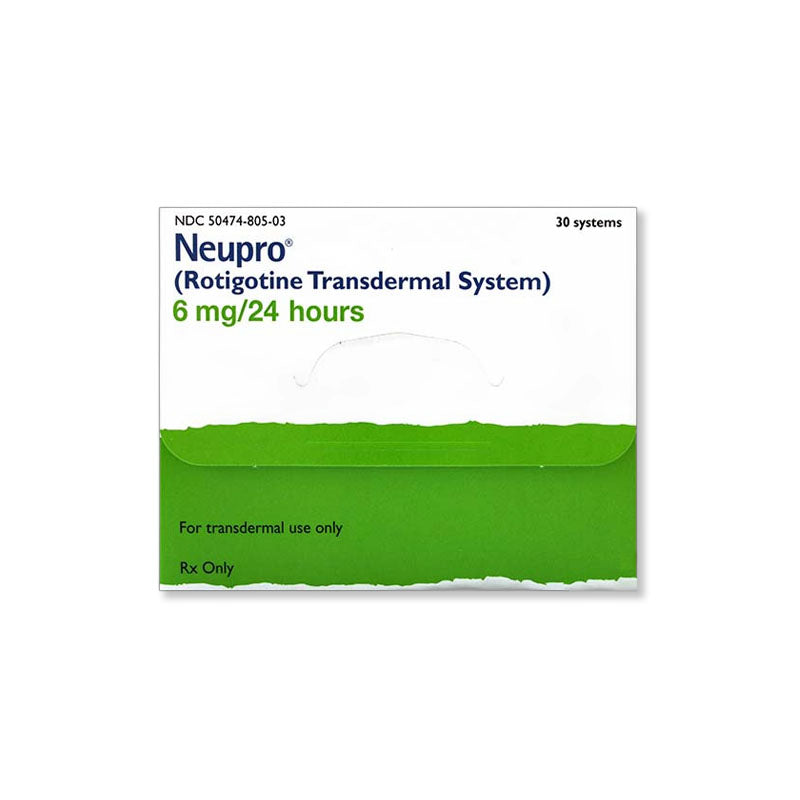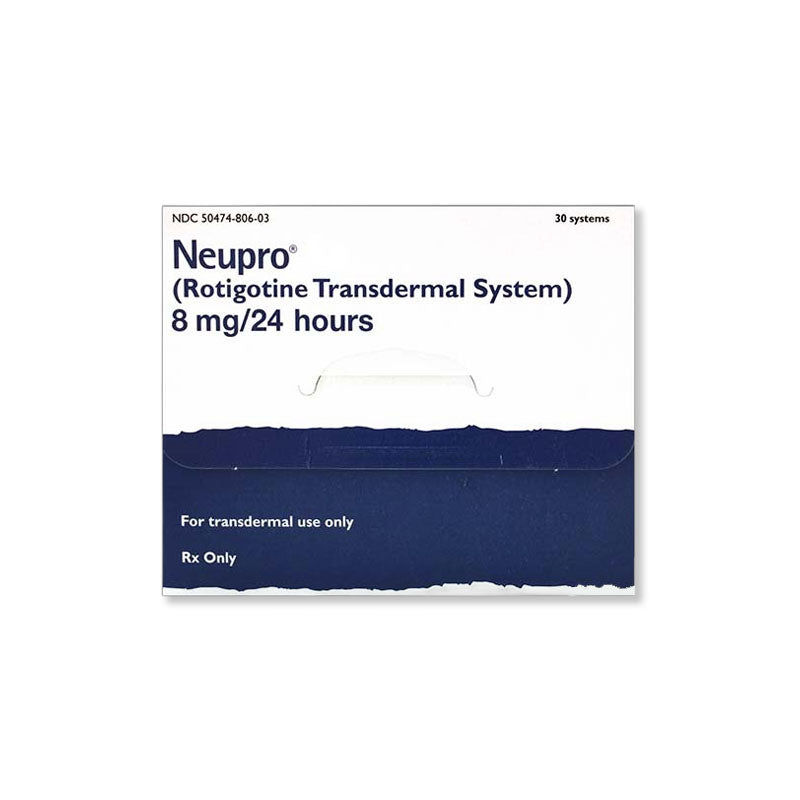UCB PHARMA CANADA Inc
Neupro (Rotigotine)
Neupro (Rotigotine)

Couldn't load pickup availability
What is this medication?
Neupro has some of the same effects as a chemical called dopamine, which occurs naturally in your body. Low levels of dopamine in the brain are associated with Parkinson's disease.
Neupro skin patches are used to treat symptoms of Parkinson's disease, such as stiffness, tremors, muscle spasms, and poor muscle control.
Neupro is also used to treat restless legs syndrome (RLS).
How should I use this medication?
Use Neupro skin patches exactly as prescribed by your doctor. Follow all directions on your prescription label and read all medication guides. Your doctor may occasionally change your dose.
Read and carefully follow any Instructions for Use provided with your medicine. Ask your doctor or pharmacist if you do not understand these instructions.
Apply the patch to clean, dry, and hairless skin. Avoid placing the patch where it will be rubbed by a waistband or tight clothing. Press the patch firmly into place for about 30 seconds. You may leave the patch on while bathing, showering, or swimming.
Remove the skin patch after 24 hours and replace it with a new one. Choose a different place on your body to wear the patch each time you put on a new one. Do not use the same skin area twice within 14 days.
If a patch falls off, put a new patch on a different place on your body and wear it the rest of the day. Then replace the patch the next day at your regular time.
Wash your hands with soap and water after applying or removing the patch.
Keep used and unused Neupro skin patches out of the reach of children or pets.
If you are using Neupro for RLS, call your doctor if your symptoms get worse, or if they start earlier in the day than usual.
This medicine can affect the results of certain medical tests. Tell any doctor who treats you that you are using Neupro.
The Neupro patch may burn your skin if you wear the patch during an MRI (magnetic resonance imaging). Remove the patch before undergoing such a test.
Do not stop using Neupro suddenly, or you could have unpleasant withdrawal symptoms. Ask your doctor how to safely stop using this medicine.
Keep the skin patch in its sealed pouch until you are ready to use it. Store the pouches at room temperature away from heat and moisture.
After removing a patch, fold it in half so it sticks together and throw it away in a place where children or pets cannot get to it.
Dosing information:
Usual Adult Dose for Parkinson's Disease:
- Early-stage Parkinson's disease: Apply 2 mg topically once a day
- Advanced-stage Parkinson's disease: Apply 4 mg topically once a day
- Maintenance dose: Increase weekly in 2 mg/24 hours increments if additional therapeutic effect is needed
- Lowest effective dose: 4 mg/24 hours
- Maximum dose for Early-stage Parkinson's disease: 6 mg/24 hours
- Maximum dose for Advanced-stage Parkinson's disease: 8 mg/24 hours
Usual Adult Dose for Restless Legs Syndrome:
- Initial dose: Apply 1 mg topically once a day
- Maintenance dose: Increase weekly in 1 mg/24 hours increments if additional therapeutic effect is needed
- Lowest effective dose: 1 mg/24 hours
- Maximum dose: 3 mg/24 hours
What if I miss a dose?
If you forget to change a patch on your scheduled day, remove and replace the patch as soon as you remember. Wear the new patch until your next regular patch-changing time. Do not change your schedule, even if you wear the new patch for less than 24 hours.
How should I store this medication?
Keep the skin patch in its sealed pouch until you are ready to use it. Store the pouches at room temperature away from heat and moisture.
What should I avoid while using Neupro?
- Drinking alcohol with this medicine can increase side effects.
- Avoid driving or hazardous activity until you know how this medicine will affect you. Your reactions could be impaired. Avoid getting up too fast from a sitting or lying position, or you may feel dizzy.
- Avoid applying a patch to skin that is irritated, or to skin where you have applied lotion, oil, cream, ointment, or powder.
- Do not expose the skin patch to heat while you are wearing it. This includes a hot tub, heating pad, sauna, or heated water bed. Heat can increase the amount of drug absorbed through your skin and may cause harmful effects.
What are the possible side effects of using this medication?
Get emergency medical help if you have signs of an allergic reaction to Neupro:
- hives;
- difficulty breathing;
- swelling of your face, lips, tongue, or throat.
Call your doctor at once if you have:
- severe skin irritation that does not clear up within several hours after removing a skin patch;
- extreme drowsiness, falling asleep suddenly, even after feeling alert;
- a light-headed feeling, like you might pass out;
- agitation, confusion, hallucinations, paranoia (most commonly in elderly people);
- fast heart rate;
- increased sexual urges, unusual urges to gamble, or other intense urges;
- unusual thoughts or behavior; or
- uncontrolled muscle movements.
Some people using Neupro have fallen asleep during normal daytime activities such as working, talking, eating, or driving. Tell your doctor if you have any problems with daytime sleepiness or drowsiness.
Common Neupro side effects may include:
- nausea, vomiting, loss of appetite;
- headache, dizziness, drowsiness;
- vision problems;
- swelling in your hands or feet, rapid weight gain;
- increased sweating;
- sleep problems (insomnia); or
- redness, itching, or swelling where a patch was worn.
This is not a complete list of side effects and others may occur. Call your doctor for medical advice about side effects. You may report side effects to FDA at 1-800-FDA-1088.
What other drugs will affect Neupro?
Using Neupro with other drugs that make you drowsy can worsen this effect. Ask your doctor before using opioid medication, a sleeping pill, a muscle relaxer, or medicine for anxiety or seizures.
Other drugs may interact with rotigotine, including prescription and over-the-counter medicines, vitamins, and herbal products. Tell your doctor about all your current medicines and any medicine you start or stop using.
